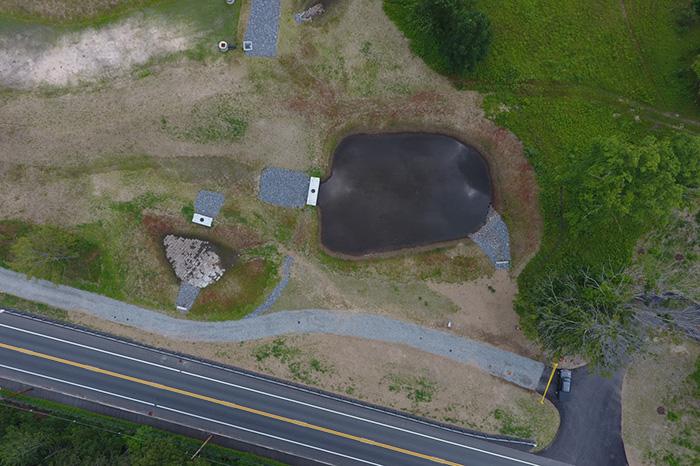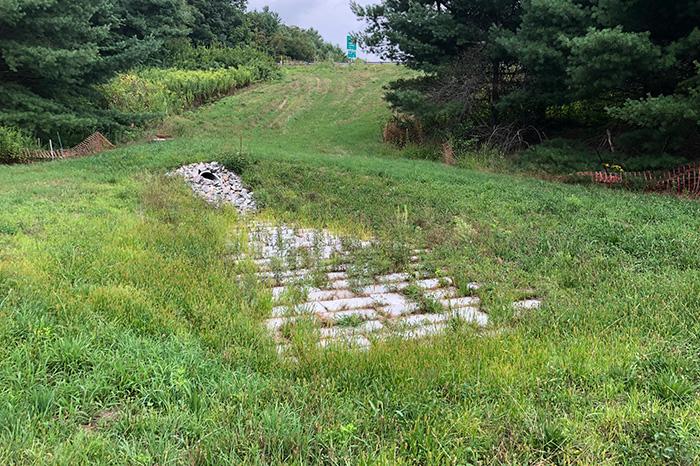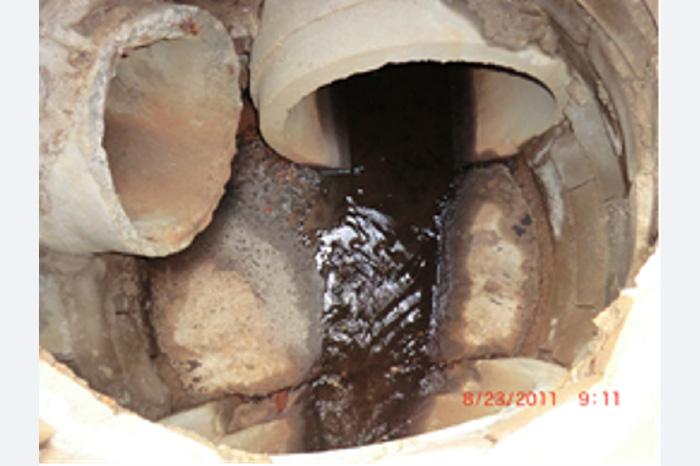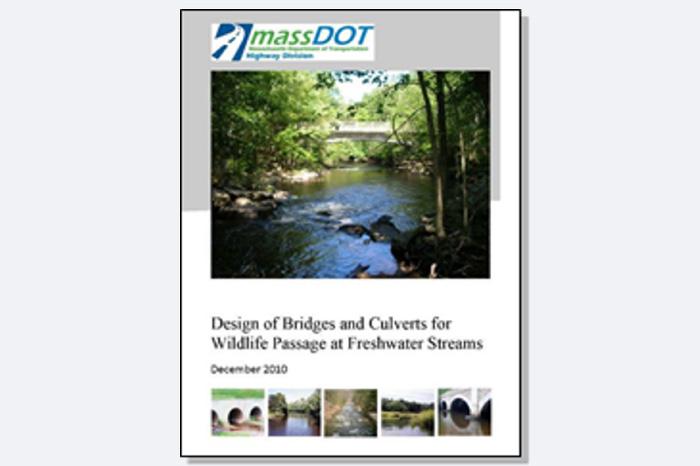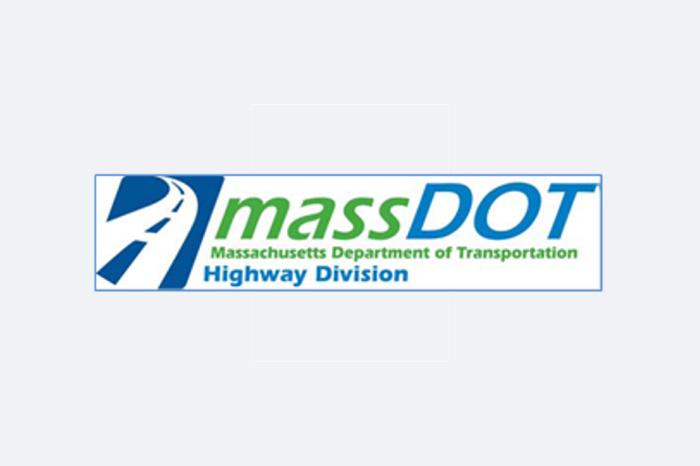MassDOT Stormwater BMP Design
Back to ProjectProject Description
Through an on-call services agreement with the Impaired Waters Program from 2012-2015 and now an on-call Stormwater and Water Resources Technical Support Contract (2015-2022), CEI continues to provide consulting services to the Massachusetts Department of Transportation (MassDOT), on a wide range of issues related to stormwater and water resources. CEI engages in periodic consultations and tasks assigned by the agency’s Environmental Division staff, to support MassDOT’s development of stormwater management policy, compliance with stormwater management regulations, participation in the development and review of regulatory initiatives, and the design of stormwater management systems. Under the new contract, CEI continues to provide the following types of services:
- Ongoing consultation on all aspects of state and federal stormwater policy and permitting, including preparation of drainage designs for MassDOT projects, participation in departmental and interagency meetings regarding stormwater policy, preparation of MassDOT guidance documents; and review of road and bridge project designs prepared by others;
- Engineering services for the design of stormwater Best Management Practice (BMP) retrofits in accordance with MassDOT’s Impaired Waters Program;
- Consultation on transportation system stream crossing design and permitting to meet current regulatory requirements for wildlife passage, including development of updated guidance materials, field evaluations of existing and proposed stream crossings, reviews of project designs, preparation of designs, and participation in project and policy meetings related to stream crossings;
- General policy and regulatory consultation and review on topics such as stormwater, wetlands, wildlife, flood management, sustainability, and adaptability initiatives.
Through these consultations, MassDOT’s Environmental Services Section staff has direct and immediate access to CEI for our design support and expert professional advice on water resources technical design matters, regulatory policy initiatives, and permit compliance issues. Specific projects have included:
- Representing MassDOT at policy and technical groups working with the MassDEP to update state stormwater management standards.
- Representing MassDOT on a MassDEP technical committee to address how proprietary devices would be evaluated under state standards.
- Reviewing applicability of TMDL provisions to specific MassDOT roadway and support facilities projects.
- Assisting MassDOT in preparation of comments on pending stormwater-related regulations.
- Assisting MassDOT in complying and responding to regulatory permit conditions on numerous specific state highway and bridge improvement projects.
- Assisting environmental staff in review of other engineering consultants’ designs of highway projects, relative to stormwater management compliance. This includes helping MassDOT advise other consultants on potential project enhancements or alternatives for improved stormwater management.
- Consulting with environmental staff regarding selection of stormwater management measures for the redevelopment of support facilities such as salt/sand storage facilities.
- Consulting with environmental staff on O&M and Long Term Pollution Prevention Plan components.
- Research and memorandum regarding the use of Open Graded Friction Course (OGFC) for stormwater management benefits.
- Assistance to MassDOT for preparation of technical presentations on stormwater topics for conferences and workshops.
- Ongoing assistance to MassDOT in updating its stormwater management guidance manual.
Stormwater BMP Design
CEI has provided engineering designs and permitting for numerous prioritized stormwater BMP sites throughout the Commonwealth for MassDOT. The following is a list of projects either completed or in process.
- Infiltration Basin Conceptual Design, Route 187, Westfield, MA
- Templeton Impaired Water Compliance
- S. Hadley/Granby Impaired Water Compliance
- Westfield Impaired Water Compliance
- Oxford I-90 Route 12/20 Impaired Water Compliance
- State Route I-84 Sturbridge
- BMP Retrofits Site Screening and Feasibility (Impaired Water Compliance)
- Assessment of Lexington Brook
- Seekonk Routes 44, 114A, 6, I-95 Impaired Water Compliance
- Grafton Route 122 Impaired Water Compliance
Statewide Culvert Handbook
MassDOT has jurisdiction over numerous roadway stream crossings, where existing or proposed bridges and culverts may affect aquatic and terrestrial wildlife movement along the streams and riparian corridors. MassDOT retained CEI to assist with development of the handbook, Design of Bridges and Culverts for Wildlife Passage at Freshwater Streams, to provide MassDOT engineers and consultants with guidance in addressing this objective in the design of highway stream crossings. The handbook was issued in 2010; CEI will also assist the Department with an update of the handbook to address regulatory changes and evolving MassDOT design practices. The handbook provides the following:
- Rationale for integrating wildlife passage elements into the design of bridges and culverts, and a description of the state and federal regulatory framework for providing stream crossings that accommodate the movement of indigenous wildlife.
- MassDOT policy and guidance regarding selection and design of new and replacement stream crossing structures, with consideration of wildlife passage.
- An annotated summary of bridge and culvert design practices that provide wildlife passage, with a focus on “stream simulation” design and alternative measures to enhance wildlife movement.
- Discussion of common constraints affecting crossing designs, particularly at replacement structures, so design addresses wildlife accommodation in the context of critical design parameters such as: flood control, right-of-way limitations, structural integrity, and construction feasibility.
CEI responsibilities included development of handbook concepts, text, graphics, and supporting reference materials. CEI also prepared presentation materials to support MassDOT technical briefings, technical paper and presentation for the 2009 International Conference on Ecology and Transportation (ICOET), and a poster presentation for the 2011 ICOET. The current handbook can be accessed here.
Illicit Discharge Detection and Elimination
CEI worked with the Massachusetts Department of Transportation (MassDOT) to conduct field inspections of approximately 5% of their stormwater system for illicit discharges (approximately 120 miles) under its Illicit Discharge Detection and Elimination program. Final outfalls were inspected for dry weather flow, odors, or other visible indicators of non-stormwater flow. Inspections took place during dry weather and only flows that occurred on days with less than 0.1 inches of rain in the previous 24-hours were considered suspect illicit discharges. Flows noted on days with precipitation within the previous 24-hours were revisited after 24 hours of dry weather. Pipes entering the system that did not appear to connect to other parts of the stormwater system were noted. The inspections included the following:
- Collected GPS data on the main trunk line of the system including feature type, pipe layout and flow direction.
- Identified the section of the stormwater system where suspect flows began and noted surrounding structures.
- Collected a sample of the flow at the most upstream location of dry weather flow within the MassDOT system. Analyzed the sample for indicator substances including ammonia and surfactants. Where exceedances in concentrations were reported, sampled for additional parameters.
- Photo-documented suspected flows and structures.
- If sampling results indicated flow that was a potential illicit discharge, the MassDOT was notified and follow up identification measures such as dye testing or video inspection were recommended.
The 120 miles was prioritized based on client discussions and focused on impaired waterbodies with pathogen impairments.

